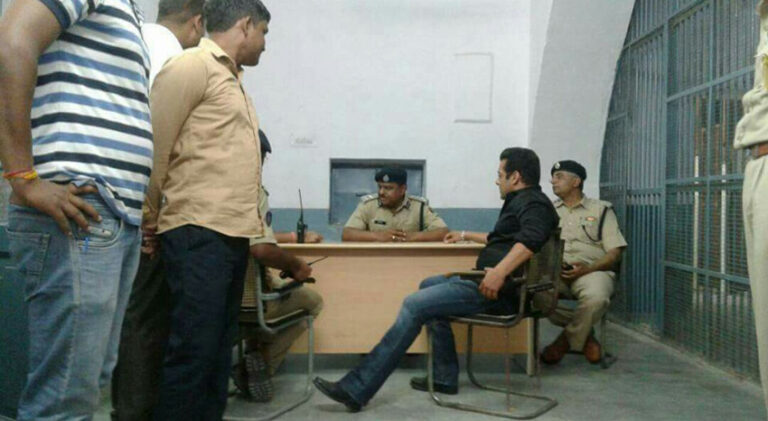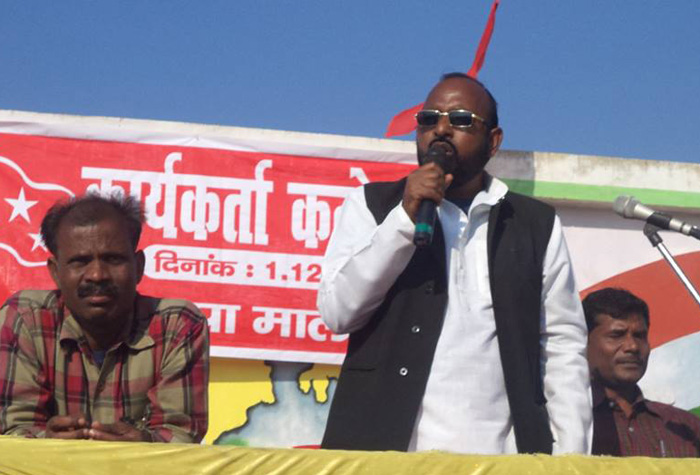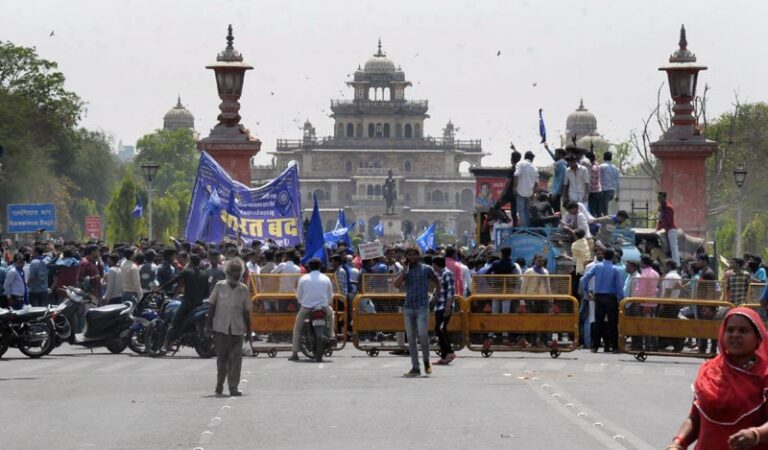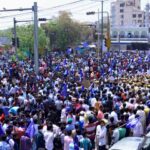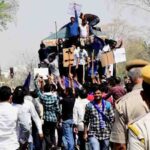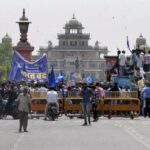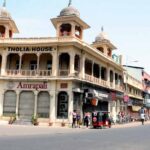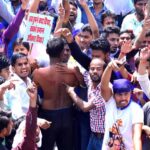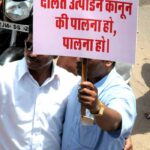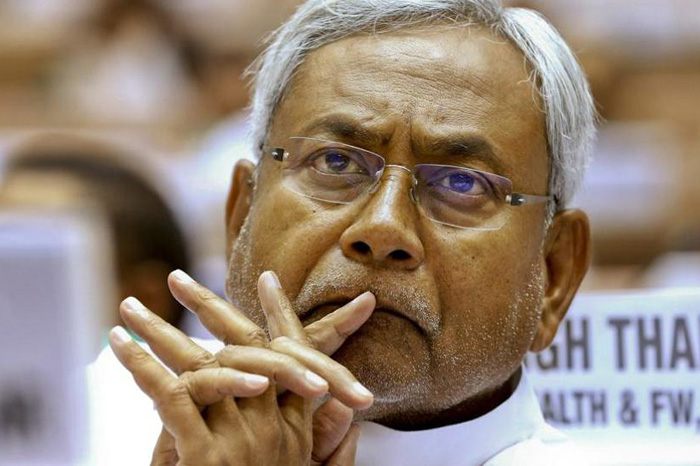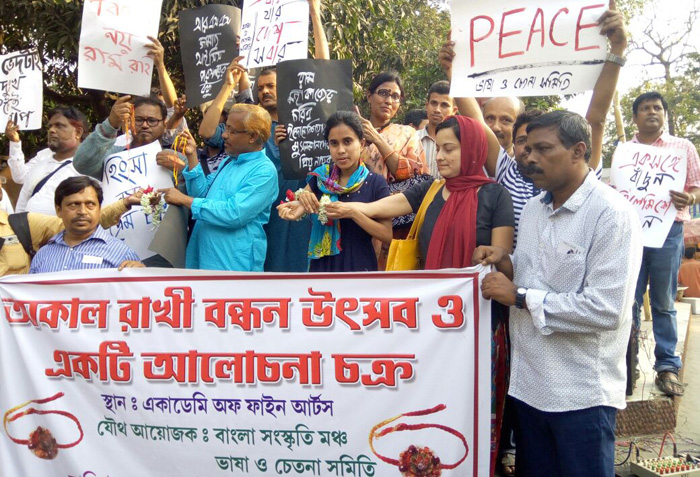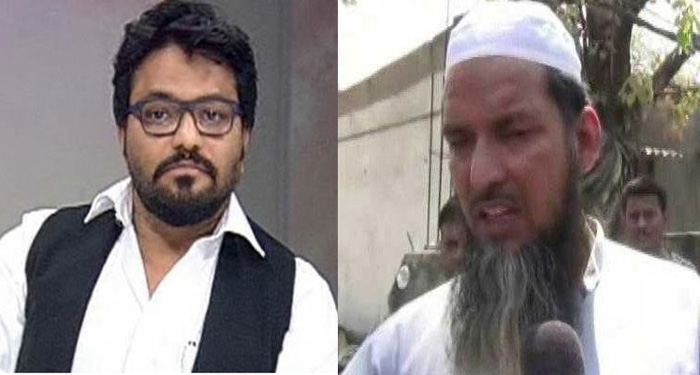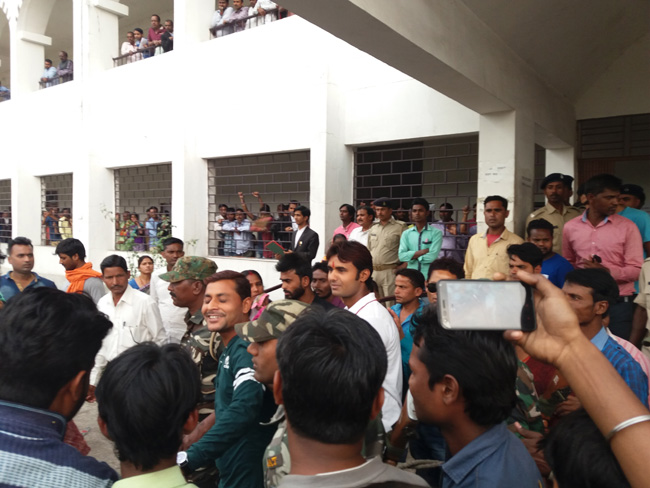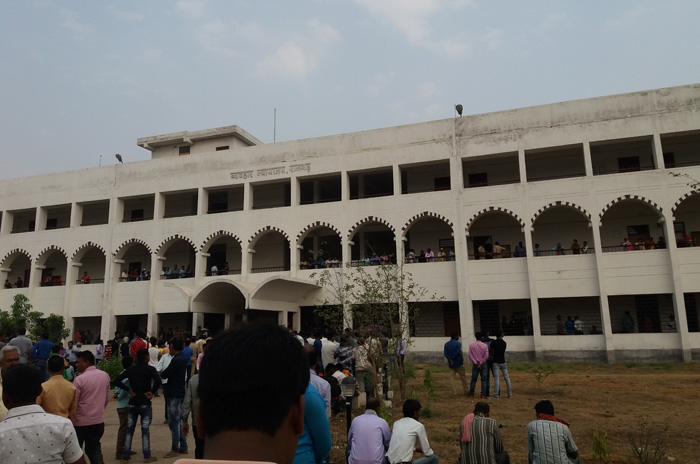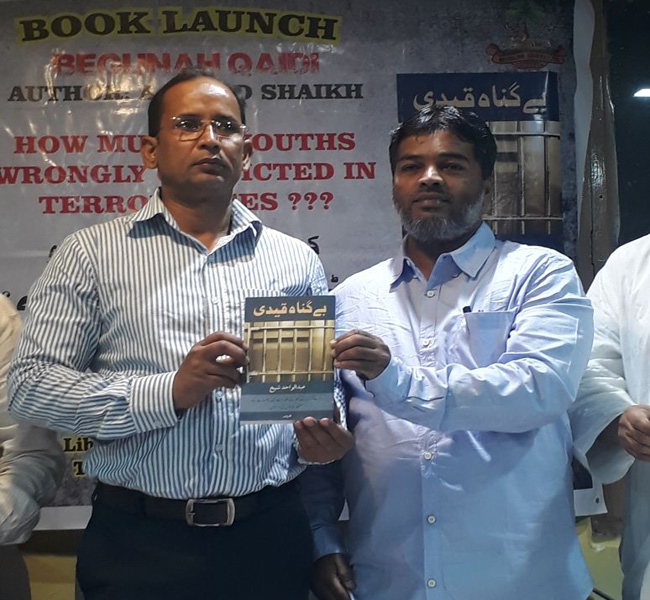“The ABVP-RSS activists gave me literatures on Deen Dayal Upadhyay to read and think of joining their ideology. But the more I read those literatures, the more I got disconnected to that ideology”, Nitish Kumar had told me while rehearsing to part ways with his old political friend, Lalu Prasad in 1994.
His “admirers” then, Abdul Ghafoor and Shivanand Tiwary too were present when Nitish ji was talking informally on why he was leaving Lalu Prasad and the Janata Dal—the party of his ideological moorings.
Nitish ji—as we refer him ever since we know him—was quite young; probably in his early 40’s then and was the first time M.P from the Barh Lok Sabha constituency. But he had surely emerged as a promising leader on the socialist firmament then dominated by his seniors—Chandra Shekhar, Devi Lal, George Fernandes, Madhu Dandavate, Madhu Limaye, Mulayam Singh Yadav and Sharad Yadav.
I too was a cub reporter with The Hindustan Times, learning the skill in political reporting. I felt that I too had some worth as a political reporter when the leaders like Nitish ji, Lalu Prasad, Shivanand Tiwary and Sharad Yadav talked informally or in confidence to me.
Covering Nitish as a union minister holding key portfolios on different stages of Indian history and as Bihar chief minister and having several rounds of formal and informal interactions with him, I have discovered his four distinct traits that I am sharing with my readers here.
1—Nitish Kumar is a pragmatic power politician but very non-compromising on his positions.
2—Rooted to the philosophy of Ram Manohar Lohia, Nitish literally abhors communalism and corruption in public life.
3—He means what he says and can’t work under pressure for long whatever is the situation.
4—He thinks a lot before speaking but means what he says.
On the basis of my own assessment about him, I can say with all the responsibility that Nitish must be very disturbed on the recent communal flare-up in Bihar. If he has said, “People know my background. I am as non-compromising on communalism as on corruption”, it does not augur well for JDU-BJP alliance in Bihar. If he has said it, I am sure he means it for he seldom says what he doesn’t mean.
Senior sources in Bihar police confided to me that the administration received the application for as many as 29000 Ramnavami processions this year—an unprecedented number in Bihar. The policemen also confided that the RSS—through its different wings—was using the religious events in an organised manner to communalise and polarise the society. A senior RSS-BJP leader, Ashwini Choubey has let loose his son to fish in Bihar’s troubled waters. The RSS’s merchants of hate are round the clock at work to demolish Nitish’s “image” and fuel division in society. Eight of Bihar’s districts are in the grip of tension engineered primarily by the RSS foot-soldiers.
Though I am away in Punjab and disconnected to Bihar for the last nine months, I have heard from some of my senior IPS friends that the chief minister was round the clock monitoring the situation and was trying to control it but not getting any cooperation from his BJP colleagues.
In a way, it is again one of the most trying times for Nitish. In the past too, he has faced the trying times but has got away with them with panache. For example, he parted ways with Lalu but went on to replace the Lalu-Rabri regime in 2005. He hated Narendra Modi and dumped the BJP in 2013. He suffered initial defeat at 2014 Lok Sabha polls but got back into company of his old friend, Lalu Prasad and roundly defeated the BJP in 2015 elections in Bihar.
Again sensing that with the BJP government in power at the Centre, he might ensure a faster development of Bihar, he switched back to the NDA in July 2017. He had kept the RSS related extremist elements in check from 2005 to 2013 and might have calculated that he would be able to crack his whip again on them while ensuring development of Bihar.
But his last move of going back to the BJP has been backfiring. My own understanding of Nitish suggests that he must be undergoing a very disturbed phase and must be finding the ways to “punish” the elements trying to break amity in Bihar. Nitish is hardly known for either defending the wrongdoers or pardoning them.
What has surprised me is Lalu Prasad’s recent statement, “Nitish is finished. The BJP has set Bihar ablaze”. I have no objection to Lalu’s second sentence: “The BJP has set Bihar ablaze”.
But I am asking a very simple question from Lalu ji, “Can he or his RJD afford to pull down Nitish government if the latter dumps the BJP?”
Unlike Nitish, Lalu is a loud-mouth and can speak anything and everything.
The people of the state do remember that Lalu ji had supported Nitish despite the later saying that he has not solicited the RJD’s support in 2013-14. The people of the state also know that Nitish had walked out from Mulayam Singh Yadav’s house in a huff ahead of 2015 Assembly elections in Bihar. Next morning, Lalu ji had announced, “I accept Nitish has CM candidate… I have decided to eat poison for defeating the BJP”.
Has the situation for Lalu ji changed? I don’t know how will the situation unfold in the days to follow. But what I am sure that Lalu Prasad will have to “eat poison” again and again to be in company with Nitish Kumar—whom he describes as chhota bhai and later reciprocates as bara bhai. Lalu may not like Nitish’s “arrogant” and “whimsical” ways. But he has no way out other than backing Nitish in the event of the latter pulling the rug from beneath the BJP’s feet.
Nitish might be uncompromising on certain issues. I have no qualms in saying that Nitish is obstinate too—not a very good trait for a politician. But Lalu Prasad has no way out other than acting on Nitish’s “diktat” if the latter knocks Lalu’s door.
Given his moral positioning, it is always for Nitish to decide whether he stays with the BJP or goes back to his original home—built on the bricks of socialism and secularism but corroded by corruption.
Some of my friends in Patna have confided to me that Nitish stands finished. He is simply a “toy” in the hands of the RSS-BJP. I don’t buy these claims. I have lived and travelled in Bihar. I have not found a single member of minority community doubting Nitish’s credential as a secular leader during his long association with the BJP. Some Muslims might have sided more with Lalu ji for strategic reasons but the community at large has faith in Nitish’s commitment to socialism, amity and secularism.


